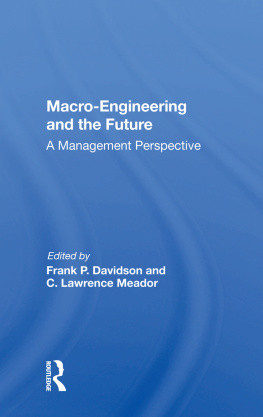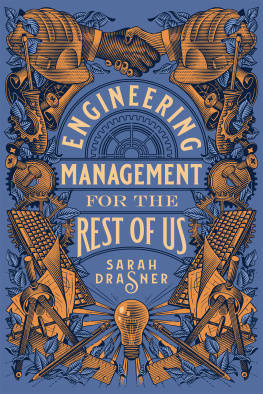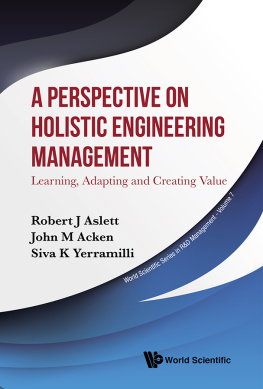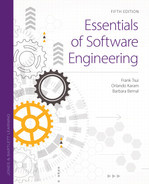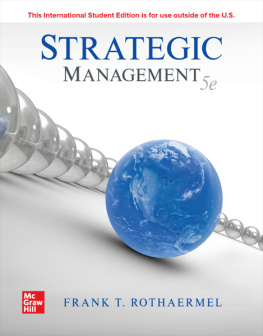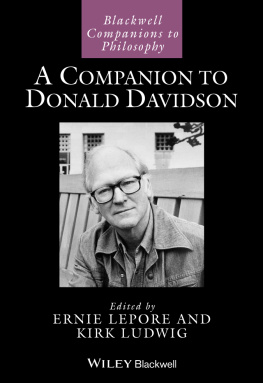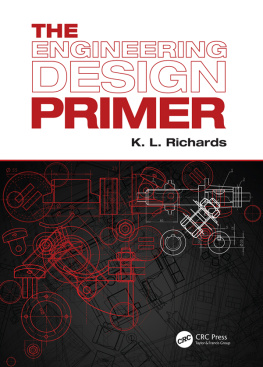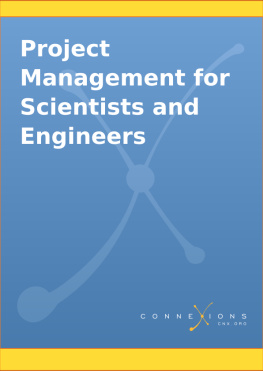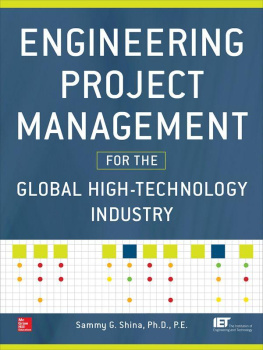Macro-Engineering and the Future
Also of Interest
Macro-Engineering and the Infrastructure of Tomorrow, edited by Frank P. Davidson, Lawrence J. Giacoletto, and Robert Salkeld
How Big and Still Beautiful? Macro-Engineering Revisited, edited by Frank P. Davidson, C. Lawrence Meador, and Robert Salkeld
Strategies for Conducting Technology Assessments, Joe E. Armstrong and Willis W, Harman
The American Steel Industry: Problems, Challenges, Perspectives, Luc Kiers
Hypergraphics: Visualizing Complex Relationships in Arts, Science, and Technology, edited by David W. Brisson
Life in the Universe: The Ultimate Limits to Growth, edited by William A. Gale
The Reception of Unconventional Science, edited by Seymour H. Mauskopf
Westview Special Studies in Science, Technology, and Public Policy/Society
Macro-Engineering and the Future: A Management Perspective
edited by Frank P. Davidson and C. Lawrence Meador
Macro-engineering projects--enormous undertakings such as the design and construction of new cities, energy islands, and even outer-space industrial complexes--require bold vision, courage, and optimism as well as engineering and management skills. The need for individuals with these qualities is growing as the United States faces its greatest challenge to date: the re-industrialization required to maintain the country's preeminent position in world technology.
Re-industrialization will require gigantic investments in improved industrial and transportation infrastructures so as to provide energy, water, and material base for an expanding and streamlined economy. The authors of this book offer the fresh perspectives and innovative thinking of macro-engineering as the most promising approach to a project of this scale--essentially the retooling and restructuring of U.S. industry. They look at the technical and financial considerations involved, the management skills required, and practical solutions to the problem of re-educating both managers and society. They also address the concerns of developing countries over the potential impact of macro-engineering projects. Their papers present a state-of-the-art survey of the challenges, constraints, and tools involved in applying the macro-engineering approach to our most pressing problems.
Frank P. Davidson is chairman of the System Dynamics Steering Committee at Alfred P. Sloan School of Management, the Massachusetts Institute of Technology. C. Lawrence Meador , a former lecturer in the School of Engineering at M.I.T., is president of Decision Support Technology, Inc.
Macro-Engineering and the Future
A Management Perspective
edited by Frank P. Davidson and C. Lawrence Meador
First published 1982 by Westview Press, Inc.
Published 2018 by Routledge
52 Vanderbilt Avenue, New York, NY 10017
2 Park Square, Milton Park, Abingdon, Oxon OX14 4RN
Routledge is an imprint of the Taylor & Francis Group, an informa business
Copyright 1982 Taylor & Francis
All rights reserved. No part of this book may be reprinted or reproduced or utilised in any form or by any electronic, mechanical, or other means, now known or hereafter invented, including photocopying and recording, or in any information storage or retrieval system, without permission in writing from the publishers.
Notice:
Product or corporate names may be trademarks or registered trademarks, and are used only for identification and explanation without intent to infringe.
Library of Congress Catalog Card Number: 82-70474
ISBN 13: 978-0-367-02013-2 (hbk)
Contents
--Frank P. Davidson and C. Lawrence Meador
--Robert C. Seamans, Jr., and Frederick I. Ordway
--Norman Waks
--Andrew C. Lerner
--Lester C. Thurow
--William D. Mulholland
--William E. Leonhard
--Cordell, W. Hull
--Wallace O. Sellers
--Christopher W. Beale
--Harvey M. Sapolsky
--Mel Horwitch and C. K. Prahalad
--Peter G. W. Keen
--Jean D. Lebel
--Jay W. Forrester
--Myron Tribus
- TABLES
- Chapter 1
- Chapter 11
- Chapter 12
- FIGURES
- Chapter 3
- Chapter 12
In presenting to a larger public a selection of the papers submitted to the June 1981 Macro-Engineering Seminar held at the Massachusetts Institute of Technology, the editors wish first of all to acknowledge with special gratitude the leadership and support of Dr. Robert C. Seamans, Jr., the dean of engineering. As manager of the Apollo Program, Dr. Seamans was intimately acquainted with both the perils and the promise of large-scale technology. His unflagging sponsorship of the Macro-Engineering Research Group during his fruitful years as dean of M.I.T.'s largest school made possible the widened activities that now embrace so many institutions and individuals in so many parts of this "tightly coupled" globe.
To Dr. Myron Tribus, director of the Center for Advanced Engineering Study (CAES) at M.I.T., we address our sincere thanks for his incisive help in the planning of the seminar and for his organization's excellent management of the myriad services without which a pleasant and productive series of meetings cannot be accomplished Lea A. Johnson, director of the CAES Seminar Office, Diane Scandariato, publication manager, Karen Hanlon, registrar, and Kathleen Johnson, speaker coordinator, participated in the program with that added efficacy and zeal that are the true hallmark of organizational excellence.
To Cherie Wallett goes our special encomium for diligence and patience in the inevitable chore of making this work "camera-ready" for publication. Her task went far beyond the usual assignment of a typist and transcriber She contributed materially to improved editing and presentation and contrived to remain good-humored through days of "deadline stress" and despite masses of manuscripts and the usual call for last-minute revisions and improvements.
Frank P. Davidson
C. Lawrence Meador
FRANK P. DAVIDSON, chairman of the System Dynamics Steering Committee, Alfred P. Sloan School of Management at the Massachusetts Institute of Technology, also serves as coordinator of the M.I.T. Macro-Engineering Research Group. He holds a J.D. from Harvard Law School and has served as adjunct professor at New York Polytechnic Institute. He has been involved in macro-engineering for the past twenty years as an advisor on projects of unusual magnitude and complexity to the U.S., Canadian, and British governments and to corporations and universities. He was founding president of the Institute for the Future (Menlo Park, California) and founder of the Channel Tunnel Study Group (planning group for the English Channel Tunnel) and is a member of its governing board. He is also president of Technical Studies, Inc., the U.S. participant in the Channel Tunnel Study Group, and vice-chairman of the Institute for Educational Services in Massachusetts. Among his many publications is Macro-Engineering and the Infrastructure of Tomorrow.
C. LAWRENCE MEADOR, coordinator of the M.I.T. MacroEngineering Research Group and former lecturer in the School of Engineering at the Massachusetts Institute of Technology, is a specialist in computer-based information and decision support systems for policy analysis, strategic and long-range planning, and control. He is president of Decision Support Technology, Inc., and has served as consultant to the U.S. Departments of Energy and Defense and several major corporations. He was formerly assistant director of the Center for Information Systems Research at M.I.T.'s Alfred P. Sloan School of Management and a founding member of the Clinical Decision Making Group at M.I.T.'s Laboratory for Computer Science. He has published widely, especially on decision support systems, and is an editor of How Big and Still Beautiful? Macro-Engineering Revisited. He is presently vice-chairman of the Eastern Hemisphere and Latin America Area Committee of the Institute for Electrical and Electronic Engineers' Computer Society. He also serves as an editor of the journals Computer Communications and Comunicacin e Infovmatioa.


